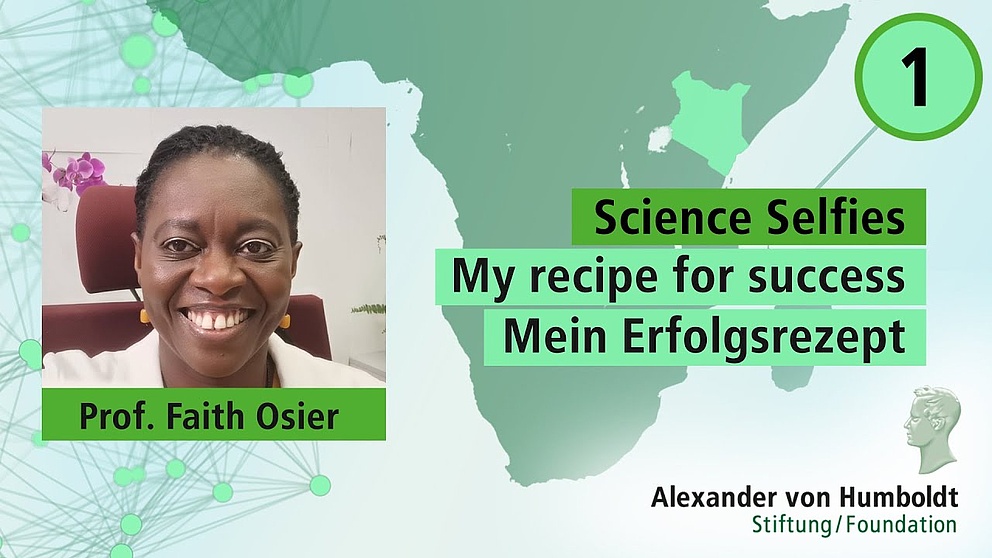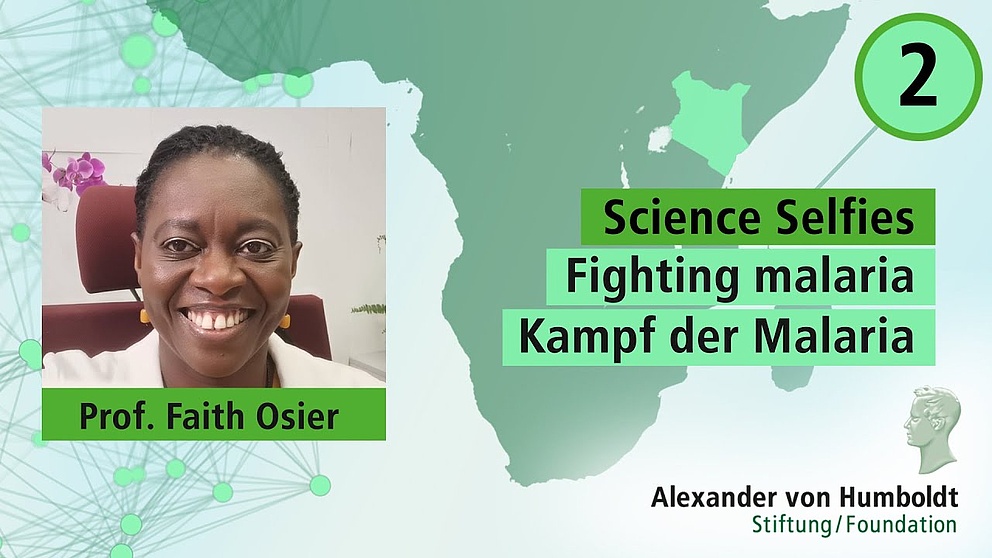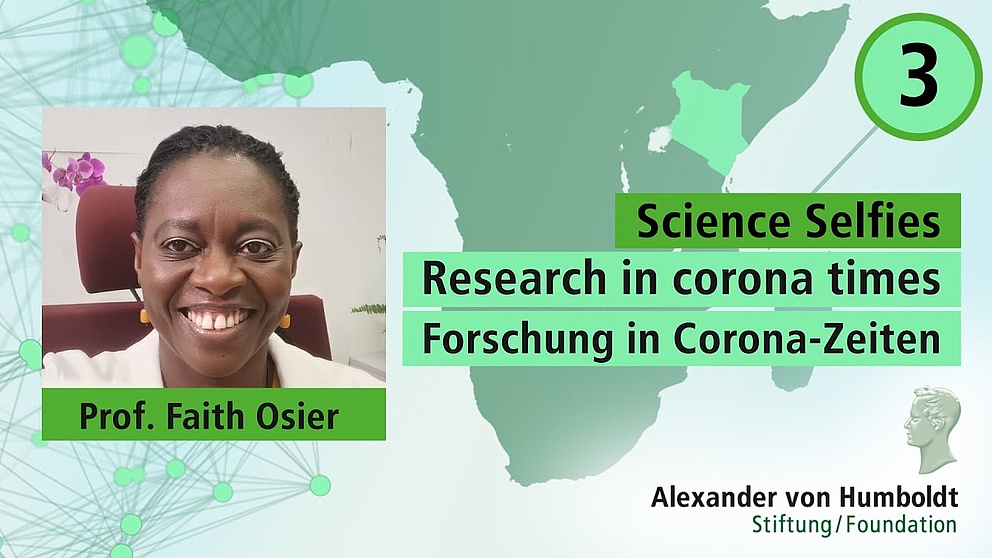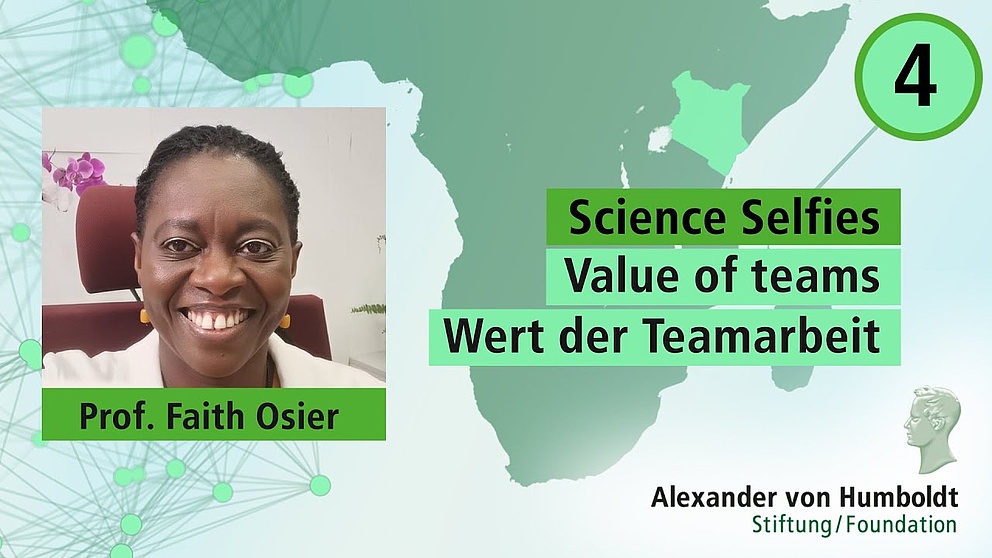
Contact
Press, Communications and Marketing
Tel.: +49 228 833-144
Fax: +49 228 833-441
presse[at]avh.de
The Kenyan Faith Osier has long dreamt of developing a vaccine against malaria. She investigates how “natural immunity” develops and which antibodies protect against parasites, with the aim of developing a vaccine against malaria so that this disease can become “history”. Her international research group is located on two continents.

Faith Osier
The 2016 Sofja Kovalevskaja Award Winner supports junior researchers at the Center for Infectiology at Heidelberg University Hospital. Parallel to this, she conducts research at the KEMRI Wellcome Trust Research Programme in Kilfi, Kenya. Currently, Faith Osier is also Executive Director of the Human Immunology Laboratory (HIL) at Imperial College London, United Kingdom, and a visiting professor at Oxford University.
Episode 1 - My recipe for success
It was a combination of luck, support from those around me, and hard work: In the first episode of Science Selfies, Professor Faith Osier tells how she succeeded in becoming an internationally recognised scientist. The immunologist heads a working group at Heidelberg University Hospital and at the KEMRI Wellcome Trust Research Programme in Kenya, her native country. In addition, she is Executive Director of the Human Immunology Laboratory (HIL) at Imperial College London, United Kingdom. Her ambitious goal: She wants to develop a vaccine against malaria – and, by doing so, save hundreds of thousands of lives every year.
Episode 2 - The fight against malaria
How can the body’s defence mechanisms be used to prevent malaria? In the second episode of her Science Selfies, Professor Faith Osier tells how she plans to develop a vaccine against malaria. Together with her team, she examines blood tests from adults and children who have developed resistance to the infection. If she is able to identify the various factors that lead to resistance, she will have taken an important step on the path to a vaccine.
Episode 3 - Research during the COVID-19 pandemic
This crisis brings enormous challenges but also holds opportunities. In episode 3 of her Science Selfies, Professor Faith Osier describes the massive changes and problems that the pandemic has brought for her work and the work of her team. Particularly in Kenya, the entire lab work being done in the malaria research field had to be converted to COVID-19 research. At the same time, Osier also sees positive effects from the pandemic. One of them is that science is receiving more attention and recognition.
Episode 4 - The importance of team work
Together it is possible to achieve more: The last episode of her Science Selfies takes a look at another one of Faith Osier’s recipes for success. The internationally successful immunologist describes why she attaches so much importance to teamwork. She always seeks to put each and everyone’s strengths to use for her team. As the team leader, she feels it is important to foster young team members and see how they develop into independent scientists.
Video editing: Dirk Gilson




